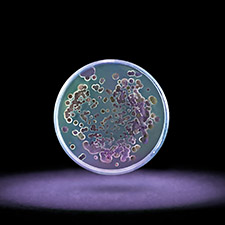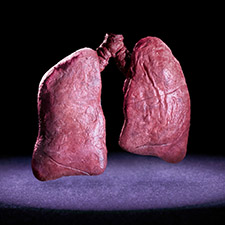We are creating a brighter future by growing medicine in plants
Help us discover the unknown in plants

We're discovering the unknown in plant science
"Our goal is to produce plants capable of growing pharmaceuticals, creating a new generation of affordable, accessible drugs to treat a range of conditions including cancer, pain and obesity."
Medicines for many diseases such as cancer, pain and obesity are non-existent or ineffectual, and expensive too. But if this sounds like a bitter pill to swallow, Professor David Craik might just have found your cup of tea.
Imagine if you could eat a sunflower seed or drink tea infused with the medicine needed to treat cancer or obesity.

Sunflower seeds could one day deliver plant-grown medicines.
Sunflower seeds could one day deliver plant-grown medicines.
This is not part of some fictional movie - this plot is real and it might be growing in your backyard soon! Professor Craik and his research team, in collaboration with Professor Marilyn Anderson AO of La Trobe University, have discovered a way to produce medicine inside plants. Plants are transformed into bio-factories by combining drugs with proteins called cyclotides that naturally occur in plants.
Unlike most proteins, cyclotides have a circular shape - a stable structure that’s the perfect delivery vehicle. When combined with regular peptides – short proteins that have great potential as medicines, but lack stability – they produce molecules with the promise of becoming effective medicines.
Plant-grown medicines could simplify transport and storage and have increased affordability compared to traditional drug counterparts.
Craik’s research has attracted a high volume of interest worldwide and received support from the Clive & Vera Ramaciotti Foundation to advance research into medical and food production technologies using plants.

PhD student Bronwyn Smithies works in the Clive and Vera Ramaciotti Facility.
PhD student Bronwyn Smithies works in the Clive and Vera Ramaciotti Facility.
This research program is also part of the Australian Research Council Centre of Excellence for Innovations in Peptide and Protein Science, which is led by Professor Craik and aims to produce the next generation of medicines and environmentally friendly pesticides.
Some of the specific medicines in plants being developed by Craik’s lab include streamlining the growth of anti-cancer drugs in sunflower and soybean plants, delivering pain relief drugs in Arabidopsis plants and, ironically, infusing anti-obesity peptides inside potatoes. Who would have thought that eating potato chips could one day help you lose weight! In short, producing medicines in plants is shaping up as a growth area for the future of health.




